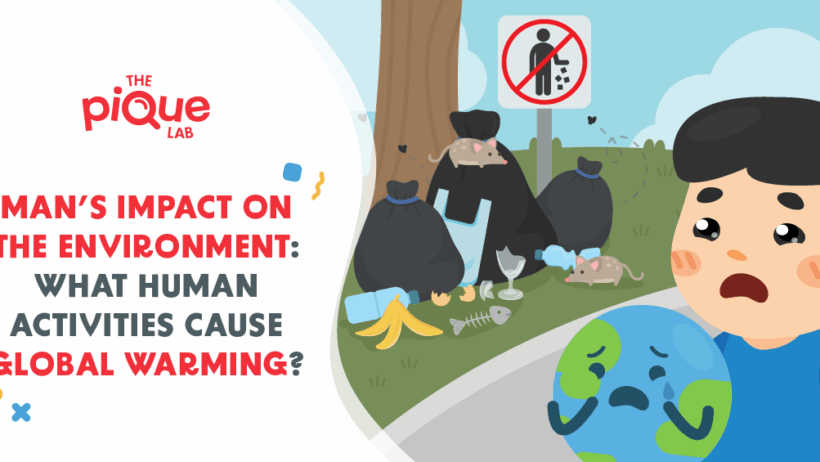Global warming is a phenomenon that has increasingly captured the attention of scientists, policymakers, and the general populace. It refers to the rise in average global temperatures due to the accumulation of greenhouse gases in the atmosphere, primarily as a result of human activities. This warming is not merely an environmental concern; it is an intricate tapestry of consequences that entwines with both ecological systems and human health, culminating in a shared fate that beckons for urgent attention.
At its core, the ramifications of global warming manifest through rising temperatures, melting glaciers, and shifting weather patterns. The gradual increase in average temperatures has an insidious echo on local ecosystems. Polar ice caps are retreating at unprecedented rates, leading to rising sea levels that threaten coastal communities worldwide. Coral reefs, which are vital to marine biodiversity, are suffering from coral bleaching due to elevated ocean temperatures. These fragile ecosystems are not just beautiful; they play a critical role in carbon sequestration and supporting marine life, providing sustenance for millions of people around the globe.
In addition to ecological disturbances, global warming has a profound impact on human health. As temperatures continue to rise, we can expect an increase in heat-related illnesses. Vulnerable populations, including children and the elderly, are particularly at risk. The consequences of heatwaves extend beyond immediate health concerns; they also exacerbate pre-existing conditions such as cardiovascular diseases. Furthermore, as temperatures soar, the range of infectious diseases expands. Diseases like malaria and dengue fever are likely to resurface in previously unaffected regions, as warmer temperatures create a hospitable environment for disease-carrying vectors.
Climate change also catalyzes extreme weather events—hurricanes, floods, and droughts—which have cascading effects on human health and safety. These disasters yield not only immediate physical harm but also long-term psychological impacts. Communities that have suffered from such events often experience elevated rates of anxiety and depression. The mental health implications of climate change are gaining recognition yet remain insufficiently addressed in many public health strategies.
Food security emerges as another critical issue interlinked with global warming. Agricultural systems depend heavily on stable weather patterns and predictable seasons. However, climate change disrupts these patterns, leading to crop failures and diminished yields. Extreme weather conditions, such as unpredictable rainfall and prolonged droughts, can lead to food shortages, inflating prices and increasing malnutrition rates globally. Not only does this affect health outcomes, but it also exacerbates socio-economic disparities. Marginalized communities bear the brunt of these changes, often lacking the resources to adapt.
Cities, as hubs of human activity, are particularly susceptible to the consequences of climate change. Urban areas are usually characterized by higher heat retention due to concrete structures and reduced vegetation—phenomena known as the urban heat island effect. As temperatures rise, urban populations may face heightened health risks. Pollution, already a significant concern in city environments, can intensify under heat stress, leading to increased respiratory disorders and cardiovascular problems.
Moreover, the interconnected nature of ecosystems means that the deterioration of one can have far-reaching effects on others. For instance, deforestation contributes to increased greenhouse gas emissions while simultaneously disrupting local hydrological cycles, leading to altered rainfall patterns. The loss of biodiversity, driven by habitat destruction and climate change, threatens ecosystem resilience. Healthy ecosystems provide essential services, including clean water, air purification, and climate regulation, which are vital for human survival.
In grappling with the implications of our climate crisis, we must shift our perspective from despair to action. The narrative surrounding climate change often feels overwhelming, yet this is a unique juncture where collective action can yield significant benefits. Embracing renewable energy sources reduces our reliance on fossil fuels, curtailing greenhouse gas emissions. Transitioning to sustainable agricultural practices not only mitigates climate change but also improves food security and health outcomes.
Furthermore, investment in public health infrastructure is paramount in combating the health impacts of climate change. Integrating climate resiliency into health systems ensures that vulnerable populations receive the support they need as environmental conditions shift. Public awareness campaigns can also play a pivotal role in shifting behaviors and fostering community engagement in sustainability initiatives.
Education serves as a linchpin in this transformative journey. A well-informed society can better advocate for policies that prioritize environmental stewardship and health equity. By fostering curiosity about ecological systems and interconnections, individuals are empowered to contribute to solutions that promote sustainability at local and global levels.
In conclusion, our shared fate hinges upon recognizing the inseparable link between global warming, environmental degradation, and human health. The consequences of our actions ripple through ecosystems and communities alike, demanding a collective response that transcends individual interests. The time to act is now. Through informed choices, policy advocacy, and community involvement, we can alter the trajectory of climate change, safeguarding both our planet and our health for generations to come.







